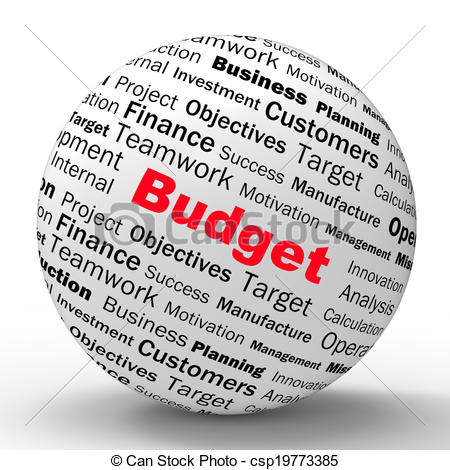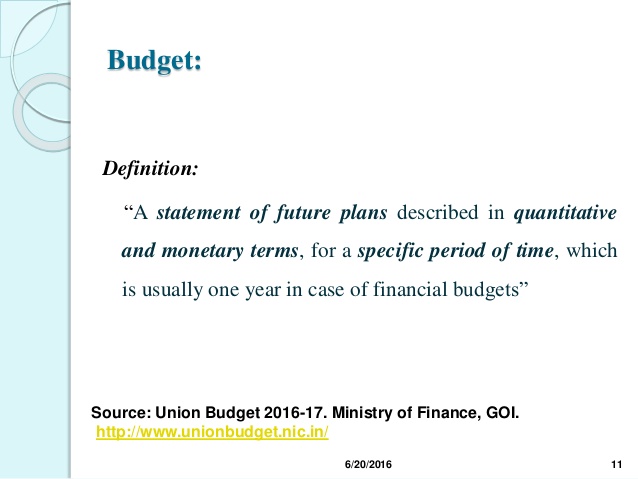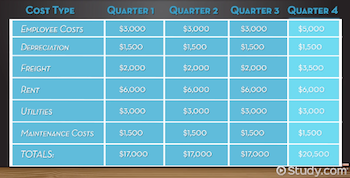7 Steps to a Budget Made EasyThe major components of a master budget include income and expenses, overhead and production costs, and the monthly, annual, average and projection totals. A master budget is an aggregate of a company’s individual budgets designed to present a complete picture of its financial activity and health.
What about Budget Forecasting and Planning?
A budget makes sure that all the money is being spent in the right direction and financial goals are attained. Some of the important aspects of the budgeting process are discussed as follows.The echelon of a certain organizational hierarchy lays down all the guidelines according to which budget will be made. They outline the financial goals that a budget should maintain. Moreover, guidelines related to sales budget, compensation, etc. are all given by the top management. The lower level management is given the least amount of participation in the budgeting process.An operating budget is a forecast and analysis of projected income and expenses over the course of a specified time period. Operating budgets are generally created on a weekly, monthly, or yearly basis. A manager might compare these reports month after month to see if a company is overspending on supplies.
budget
Master budgets are often used in larger companies to keep all individual managers aligned. By accurately outlining the expenditures, the budgeting process helps to control the spending. Without a budget, a business will never be able to keep track of its expenditures and can ultimately face considerable loss.
Levels of Involvement in Budgeting Process
It begins by deciding upon the financial goals according to which the budget will be made. Other important activities in the budgeting process include things such as forecasting, monitoring, controlling and evaluating the financial goals. A business owner has to predict whether the company will be profitable. Budgeting provides a model of the potential financial performance of a business, given that specific strategies and plans are followed. It provides a financial framework for making important decisions.This will determine whether it is profitable to run the business operations in future. If the business is not generating profit, the business will have sufficient time to adjust its revenue and costs beforehand. Profit generation is the most important factor due to which a business is running.Budgeting all monthly expenditures can help change your mindset toward money. Instead of spending impulsively, you can learn to value money as a tool to reach goals and fulfill needs. And getting your kids involved in the budgeting process early on can help them learn the value of money, since they’re involved in some of the decisions necessary to establish the budget.Cash flow/cash budget – a prediction of future cash receipts and expenditures for a particular time period. The cash flow budget helps the business to determine when income will be sufficient to cover expenses and when the company will need to seek outside financing. A master budget is used to project the income and expenses of a company. From the master budget, a small-business owner can develop a variety of reports to help set specific goals for the business.

Depending on the feasibility of these estimates, Budgets are of three types — balanced budget, surplus budget and deficit budget.
What is a budget easy definition?
budget. A budget is defined as a plan or estimate of the amount of money needed for cost of living or to be used for a specific purpose. An example of budget is how much a family spends on all expenses in a month. An example of budget is how much a person plans on spending on a new bed.
- An operating budget is a forecast and analysis of projected income and expenses over the course of a specified time period.
- A manager might compare these reports month after month to see if a company is overspending on supplies.
- Operating budgets are generally created on a weekly, monthly, or yearly basis.
Therefore, budget may seem like an added hassle but is an essential and core aspect of a business. It is through setting oneself a budget that the profit, income and savings can be categorically understood, saved and planned ahead. With a thorough and target based budget, each business becomes better equipped to analyze where the money comes from and also keep the record of where it goes.

Moreover, it lets a business owner know how much profit to make to meet all expenses. The usefulness of budgeting depends on accuracy of available information. The budgeting process helps to form the pro forma financial statements. By developing these forecasted financial statements, a business can track its profit margins.
What Is the Purpose of Budgeting?
Without generating profit, a business cannot hope to survive for long in the future. In the top-down budgeting process, the primary input is made by the top-level executives of the business.Creating a budget helps reduce the risk of unexpected losses because statistics can aid a business by predicting upcoming trends. Above all, it essentially allows them to be able to come up with newer schemes and strategies to induce a larger profit for the future.
Budgeting Process: Complete Guide

It allows a business owner or manager to determine whether the business lives up to expectations through differences between budgeted and actual expenditure. A specific budget provides information on how much a business can spend every month.
Personal or family
Budgeting is a process whereby future income and expenditure are decided in order to streamline the expenditure process. Budgeting is done in order to keep track of the expenditures and income. It serves as a monitoring and controlling method in order to manage the finances of a business.
What is mean by budgeting?
Definition: A budget is a formal statement of estimated income and expenses based on future plans and objectives. In other words, a budget is a document that management makes to estimate the revenues and expenses for an upcoming period based on their goals for the business.However, a budget provides them with vivid expectations through which they can always predict which way the business is headed. A budget is a financial plan for a defined period, often one year. It may also include planned sales volumes and revenues, resource quantities, costs and expenses, assets, liabilities and cash flows. Companies, governments, families and other organizations use it to express strategic plans of activities or events in measurable terms.To manage a business effectively, expenditure must be properly controlled. An example of how budgeting plays a role in decision making is when spending money on advertising. When the budget allocated for this aspect has been completely used, the decision is likely to stop spending money on it. Budgeting also helps measure the forecast business performance against the actual business performance.Without a proper budget, a business can never keep track of how much it has earned and how much it has spent. Budget serves a great guide by which a business can oversee its income stream and can identify potential dangers to it beforehand. Furthermore, budget acts as a valuable tool in order to take control of how a business spends.
